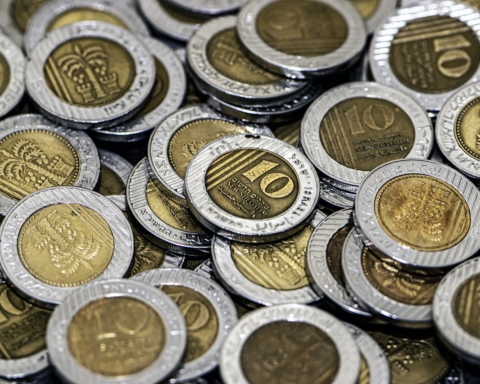“In the beginning there was light,” says Doron Arazi with a wry grin. The historian researched the history of German products in Israel. And came across one of the earliest newspaper ads for the Munich-based lighting firm Osram – in the territory that then fell under the British Mandate for Palestine. German-Israeli relations have undergone great changes since this first electric light-bulb.
The first phase
The first phase goes back to the early post-War years, when even German pencils in the Knesset caused a row. “That said, you have to realize that Israel’s infrastructure was practically founded on the Reparations Agreement [between the two countries],” explains historian Doron Arazi. Naturally, he adds, it also served to boost Germany’s post-War economy, which took off simultaneously.
Volkswagen Felix
Volkswagen is a good example of that ‘take-off’: The company’s Beetle was seen everywhere on roads in both Germany and Israel. Felix Burian’s eyes light up when you talk to him about VW in Israel. The 89-year-old Austrian is essentially the Grand Old Man of Tel Aviv car history. As a talented mechanic, he worked his way up from an impoverished immigrant (“We didn’t even own a radio”) to become the first official VW dealer: “Volkswagen Felix”, as he soon became lovingly known, opened his first workshop as early as 1960, five years after diplomatic relations were initiated between Germany and Israel. “I never found that German was frowned on,” comments Burian. And Arazi also emphasises that “in 1963 Volkswagen had already sold 3,000 cars in Israel.” However, posters show just how much the topic was to remain a taboo for years to come. Until well into the 1980s, the talk is only of “European” production in “Europe’s largest factory”. Although everyone knew that VW came from Germany. “German products were always famed for their quality, even if sometimes people only admitted this reluctantly and in private,” Arazi says.

Mixed feelings
The 1970s thus entailed “Mixed Feelings”. It is not surprising that in 1971 the sale of Mercedes busses to Israeli transport company Egged came to nothing owing to objections by the Jerusalem City Council. Not that this stopped the deal eventually happening, albeit ten years later. The Oslo Accord of 1993 marked the beginning of “Gradual Acceptance”, the heading Arazi has given the next section in the show. “Even household appliance maker AEG started insisting its name be pronounced in German to counter all the Americanisation,” the historian recalls. And something else changed, too: Gradually, gourmet products from Germany also started to become socially acceptable in Israel.
Partnership
The final section is entitled “Partnership”. “A few decades back no one would have been able to imagine there being economic cooperation between Israel and Germany,” suggests Grisha Alroi-Arloser, Managing Directo or of AHK Israel, the German-Israeli Chamber of Industry and Commerce. He believes the “Made in Germany” exhibition symbolises a platform for the future – and commemorates an important Golden Wedding that glows in the light of that first Osram bulb.





